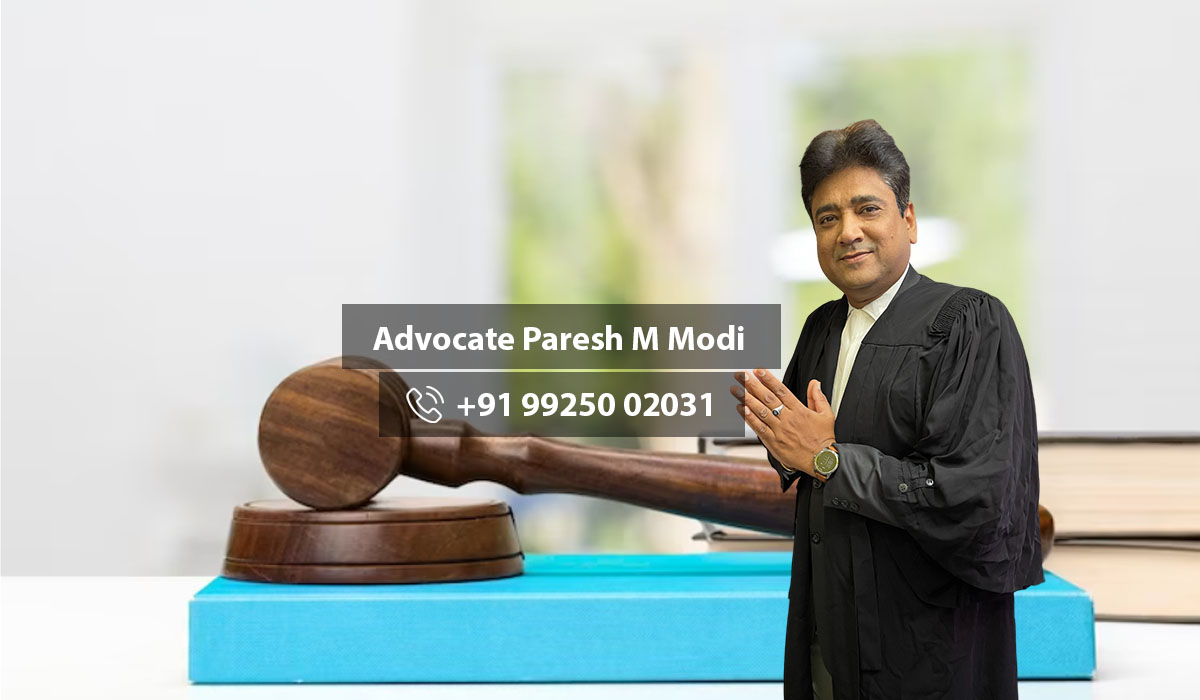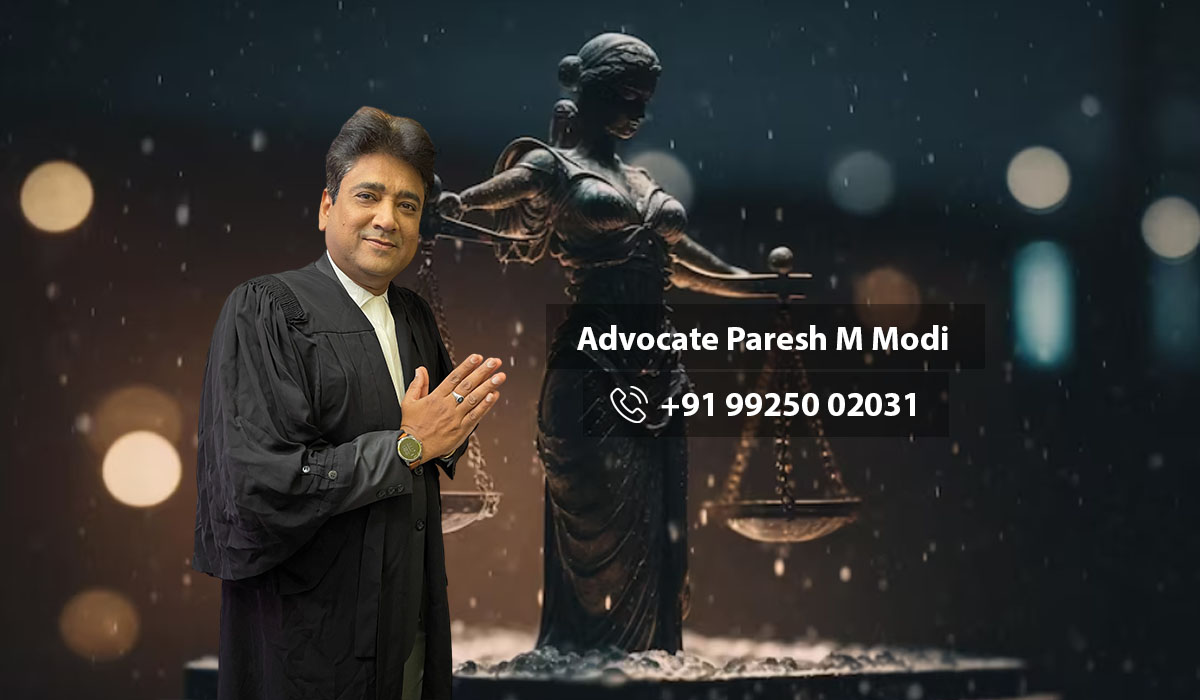Sharad Birdhichand Sarda v. State of Maharashtra (1984) – The Supreme Court’s Golden Principles on Circumstantial Evidence
Sharad Birdhichand Sarda v. State of Maharashtra, (1984) 4 SCC 116 is one of the most celebrated and authoritative judgments of the Hon’ble Supreme Court of India dealing with convictions based purely on circumstantial evidence. This landmark decision crystallised the doctrine of the “Panchsheel” (Five Golden Principles), which today governs the appreciation of circumstantial evidence in criminal trials across India.
Factual Matrix of the Case
The deceased, Smt. Manju Shree, married the appellant Sharad Birdhichand Sarda in February 1982. Barely four months after the marriage, Manju was found dead due to potassium cyanide poisoning. The prosecution alleged that the accused was emotionally involved with another woman, Ujvala, and that Manju had become an obstacle in his life. On this alleged motive, it was contended that Sharad murdered his wife by administering cyanide.
The defence, however, categorically denied the allegation of murder and contended that Manju was a sensitive and emotionally vulnerable person who was under psychological stress due to a disappointing marital life and that the death was a case of suicide.
Findings of the Trial Court and the High Court
The Trial Court and the Bombay High Court rejected the theory of suicide. Relying upon 17 circumstantial links, both courts held Sharad guilty of murder and imposed the death penalty, treating the case as falling within the “rarest of rare” category.
Supreme Court Verdict
The Hon’ble Supreme Court, after a comprehensive examination of the record, reversed the conviction and acquitted the accused. The Court emphatically held that:
When two views are reasonably possible on the evidence on record, the one favouring the accused must necessarily be adopted.
The Court found that the prosecution had failed to establish the charge beyond reasonable doubt and that the chain of circumstances was incomplete, fragile, and insufficient to sustain a conviction for murder.
Important Legal Findings
1. Incomplete Chain of Circumstances
The prosecution failed to prove:
That the accused was in exclusive possession of the poison, and
That he had the exclusive opportunity to administer it to the deceased.
Thus, the vital links connecting the accused to the commission of the offence were missing.
2. Admissibility of Letters – Section 32(1) of the Evidence Act
The prosecution relied upon letters written by Manju to her sister expressing emotional distress. The Court held that these letters were too remote in time and did not directly relate to the cause of death. Hence, they could not be treated as “circumstances of the transaction” under Section 32(1) of the Indian Evidence Act, 1872.
3. False Defence Cannot Cure Prosecution Lapses
The Court clarified a crucial principle:
A false explanation or false defence taken by the accused cannot be used to fill gaps in the prosecution case.
The prosecution must independently stand on its own legs and prove the guilt beyond reasonable doubt.
The “Panchsheel” – Five Golden Principles of Circumstantial Evidence
The Supreme Court laid down the following five indispensable conditions that must be cumulatively satisfied before recording a conviction on circumstantial evidence:
All circumstances relied upon must be fully established by clear, cogent, and reliable evidence.
The proved facts must be consistent only with the hypothesis of the guilt of the accused and not explainable on any other reasonable hypothesis.
The circumstances must be of a conclusive nature and tendency, pointing unerringly towards the guilt of the accused.
The circumstances must exclude every possible hypothesis except that of the accused’s guilt.
There must be a complete and unbroken chain of evidence, which leaves no reasonable ground for a conclusion consistent with the innocence of the accused.
Legal Significance
This judgment remains the bedrock authority for all criminal trials based on circumstantial evidence. It reinforces the cardinal principle of criminal jurisprudence that suspicion, however strong, cannot take the place of proof, and that the benefit of doubt must invariably go to the accused.
The Panchsheel principles laid down in this case continue to be consistently followed by all courts while adjudicating murder trials, dowry death cases, poisoning cases, and all criminal matters resting solely on circumstantial evidence.
Sharad Birdhichand Sarda v. State of Maharashtra (1984) – Circumstantial Evidence Panchsheel Judgment
Sharad Birdhichand Sarda v. State of Maharashtra, (1984) 4 SCC 116 એ ભારતના સુપ્રીમ કોર્ટનો એક અતિપ્રમુખ અને આધારભૂત ચુકાદો છે, જેમાં માત્ર circumstantial evidence (પરોક્ષ પુરાવા) ઉપર આધારિત દોષસિદ્ધિ માટેની Panchsheel – Five Golden Principles ની સ્થાપના કરવામાં આવી છે.
આ ચુકાદો આજ પણ murder, dowry death, poisoning અને અન્ય ગંભીર ગુનાઓમાં આધારસ્તંભ તરીકે લાગુ પડે છે.
Facts of the Case – કેસના તથ્યો
Deceased Manju Shree એ ફેબ્રુઆરી 1982માં આરોપી Sharad Birdhichand Sarda સાથે લગ્ન કર્યા હતા. ચાર મહિના બાદ Manju નું મૃત્યુ Potassium Cyanide poisoning થી થયું હતું.
Prosecution નો કેસ હતો કે આરોપી Sharad ને બીજી સ્ત્રી Ujvala સાથે પ્રેમ સંબંધ હતો અને Manju તેની માટે અવરોધ બની હતી, તેથી તેણે તેની હત્યા કરી.
Defence નું કહેવું હતું કે Manju એક sensitive અને emotionally vulnerable સ્વભાવની હતી અને લગ્નજીવનથી હતાશ હતી અને આ એક suicide (આત્મહત્યા) નો કેસ છે.
Trial Court & High Court Findings
Trial Court અને Bombay High Court એ suicide થિયરીને નકારી Sharad ને murder માટે દોષિત ઠેરવ્યો અને death sentence ફટકારી હતી, જેમાં 17 circumstantial links નો આધાર લેવાયો હતો.
Supreme Court Ruling – સુપ્રીમ કોર્ટનો ચુકાદો
Hon’ble Supreme Court એ બંને નીચલી કોર્ટના ચુકાદા રદ કરીને આરોપીને acquit (નિર્દોષ જાહેર) કર્યો અને સ્પષ્ટ કહ્યું કે:
When two views are possible, the view favourable to the accused must be adopted.
અર્થાત્ જ્યારે murder અને suicide બંને શક્ય હોય ત્યારે આરોપીને benefit of doubt આપવો ફરજિયાત છે.
Key Legal Findings – મહત્વના કાયદાકીય મુદ્દા
1. Incomplete Chain of Circumstances
Prosecution એ સાબિત ન કરી શક્યું કે:
Poison આરોપી પાસે જ હતું, અને
માત્ર આરોપી પાસે જ તેને આપવાની તક હતી.
આથી chain of evidence incomplete ગણાઈ.
2. Letters & Section 32(1) Evidence Act
Manju દ્વારા લખાયેલા પત્રો emotional distress દર્શાવે છે, પરંતુ મૃત્યુના સીધા કારણ સાથે સંકળાયેલા નથી. તેથી તેઓને Section 32(1) Evidence Act મુજબ “circumstances of transaction” તરીકે માન્ય ગણવામાં આવ્યા નહોતા.
3. False Defence Cannot Cure Prosecution Case
Court એ સ્પષ્ટ કહ્યું કે:
False plea of accused prosecution ના loopholes ભરવા ઉપયોગી બની શકતું નથી. Prosecution ને પોતાનો કેસ independently સાબિત કરવો જ પડે.
Panchsheel – Five Golden Principles
પરોક્ષ પુરાવા આધારિત દોષસિદ્ધિ માટે નીચેની પાંચ શરતો અનિવાર્ય છે:
All circumstances must be fully proved
તમામ પરિસ્થિતિઓ સ્પષ્ટ, મજબૂત પુરાવાથી સાબિત થવી જોઈએ.Facts must point only towards guilt of accused
સાબિત થયેલા તથ્યો માત્ર આરોપીની દોષિતતા તરફ જ સૂચક હોવા જોઈએ.Circumstances must be conclusive
પરિસ્થિતિઓ નિર્ણાયક અને સ્પષ્ટ હોવી જોઈએ.Must exclude every hypothesis except guilt
આરોપીની નિર્દોષતા સાથે મેળ ખાતી દરેક શક્યતા દૂર થવી જોઈએ.Complete and unbroken chain of evidence
પુરાવાની સંપૂર્ણ સાંકળ એવી હોવી જોઈએ કે કોઈ reasonable doubt બાકી ન રહે.
Legal Importance – કાયદાકીય મહત્વ
આ ચુકાદો સ્પષ્ટ કરે છે કે:
“Suspicion, however strong, cannot take the place of proof.”
શંકા કેટલીય મજબૂત હોય, તે પુરાવાનું સ્થાન લઈ શકતી નથી.
આથી આ કેસ આજે પણ circumstantial evidence આધારિત તમામ criminal matters માં guiding precedent તરીકે લાગુ પડે છે.





